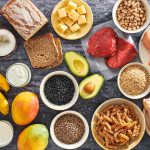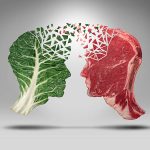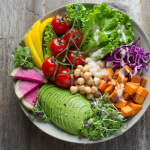
Many people associate dieting with weight loss, but for some individuals, the struggle lies in gaining weight. Skinny girls often face unique challenges when it comes to achieving a healthy body weight. While it may seem counterintuitive in a society focused on slimness, a proper weight gain diet is crucial for skinny girls looking to enhance their overall well-being and boost their self-confidence.
In this article, we will explore the importance of a healthy weight gain diet specifically tailored for skinny girls, debunk common misconceptions about weight gain, and provide practical tips and guidelines to help achieve their desired goals. It’s time to embrace a balanced approach to nutrition and empower skinny girls on their journey to a healthier, fuller self.
Designing a Healthy Weight Gain Diet
Before embarking on a weight gain journey, it is essential to determine your calorie requirements. Caloric needs vary from person to person based on factors such as age, height, weight, activity level, and metabolism. To gain weight, you need to consume more calories than you burn.
To calculate your daily calorie goal, start by determining your basal metabolic rate (BMR), which is the number of calories your body needs to function at rest. Online BMR calculators can provide an estimate based on your personal information. Once you have your BMR, add an additional 300-500 calories to create a calorie surplus and promote weight gain.
When focusing on weight gain, it’s crucial to prioritize nutrient-dense foods to support overall health and avoid excessive consumption of unhealthy, empty calories.
Key Food Groups to Include in Your Weight Gain Diet
- Lean Proteins
Include sources like chicken breast, turkey, lean beef, fish, eggs, and legumes. Proteins provide the necessary building blocks for muscle growth and repair.
- Complex Carbohydrates
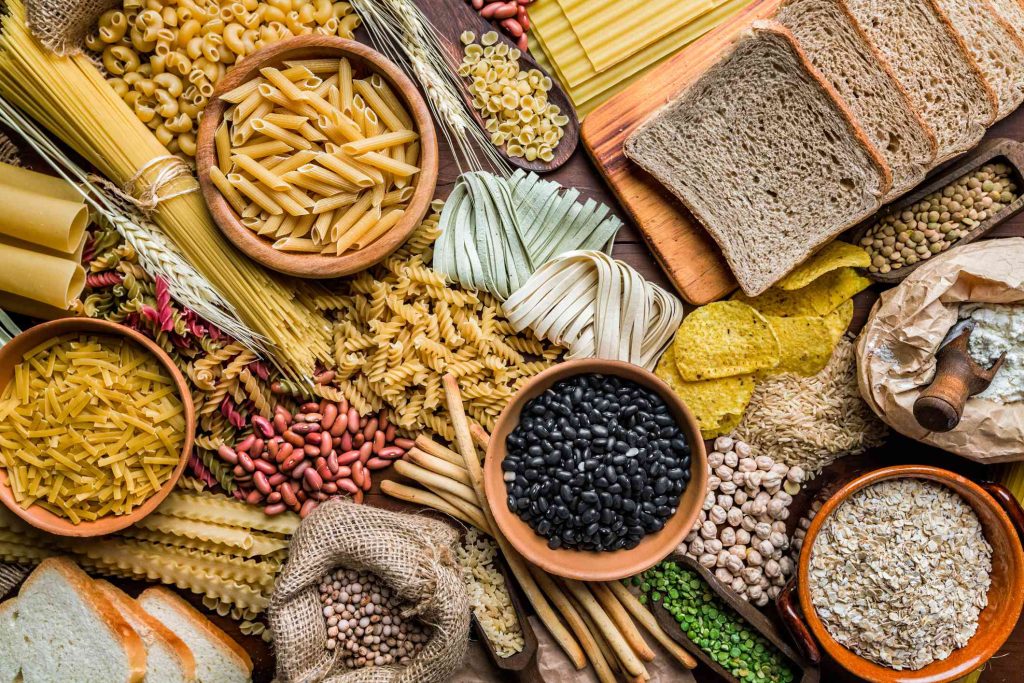
Opt for whole grains such as brown rice, quinoa, oats, whole wheat bread, and pasta. These carbohydrates provide sustained energy and essential nutrients.
- Healthy Fats
Incorporate sources like avocados, nuts, seeds, olive oil, and fatty fish. Healthy fats contribute to hormone production, joint health, and overall well-being.
- Fruits and Vegetables
Ensure your diet includes a variety of colorful fruits and vegetables to provide essential vitamins, minerals, and antioxidants. These will support your immune system and overall health.
- Dairy and Dairy Alternatives
Include options such as milk, yogurt, cheese, or plant-based alternatives like almond milk or soy yogurt. These provide calcium, protein, and other important nutrients.
Remember to balance your macronutrient intake while ensuring adequate portions. Consult a nutritionist or dietitian to personalize your weight gain diet and receive professional guidance based on your specific needs and preferences.
By incorporating a variety of nutrient-dense foods, you can ensure that your weight gain is achieved in a healthy and sustainable manner.
Meal Planning and Portion Control
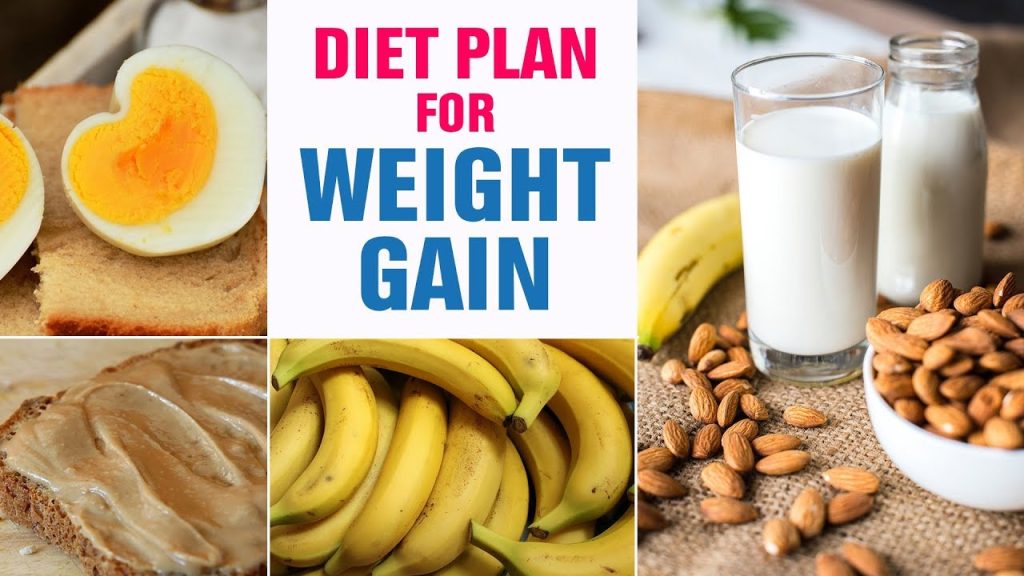
When designing a weight gain diet, creating a balanced meal plan is essential to ensure you’re consuming enough calories and nutrients throughout the day. Here are some tips to help you structure your meals:
- Breakfast Options
Start your day with a calorie-rich and protein-packed breakfast. Consider options like a vegetable omelet with whole wheat toast, Greek yogurt with granola and fruits, or a smoothie made with milk, protein powder, and nut butter.
- Lunch and Dinner Ideas
Include a combination of lean proteins, complex carbohydrates, and vegetables in your main meals. For example, grilled chicken with brown rice and steamed vegetables, lentil curry with quinoa and mixed greens, or salmon with sweet potatoes and roasted asparagus.
- Snacks for Additional Calories
Incorporate high-calorie snacks between meals to boost your calorie intake. Choose nutrient-dense options such as trail mix with nuts and dried fruits, nut butter with whole grain crackers, Greek yogurt with honey and berries, or protein bars.
Dealing With Challenges and Setbacks
Weight gain, like any journey, comes with its challenges and setbacks. It’s crucial to stay motivated and focus on your goals. Surround yourself with a support system of friends, family, or online communities who can provide encouragement and share experiences.
If you encounter plateaus, where weight gain slows down or stalls, reassess your diet and exercise routine to identify areas for improvement. Additionally, be mindful of emotional eating triggers and find healthy coping mechanisms to manage them effectively.
Conclusion
Gaining weight as a skinny girl can be challenging, but with the right approach, it’s absolutely achievable. Designing a weight gain diet plan tailored to your needs, choosing the right foods, incorporating strength training, and considering lifestyle factors are essential steps to ensure success.
Remember, progress takes time, so stay consistent, be patient, and celebrate small victories along the way. Embrace the journey, focus on your overall well-being, and enjoy the transformation that comes with a healthy weight gain.
Frequently Asked Questions
- Is it possible for a skinny girl to gain weight?
Absolutely! With the right diet and exercise plan, anyone can achieve their weight gain goals.
- How long will it take to see results?
The timeline varies from person to person, but with consistency, you can start noticing changes within a few weeks.
- Can I gain weight without going to the gym?
While the gym is beneficial, you can still gain weight by focusing on your diet and incorporating body weight exercises at home.
- Are supplements necessary for weight gain?
Supplements are not essential, but they can complement a weight gain diet by providing additional nutrients or protein if needed. Consult a professional before using any supplements.
- What should I do if I’m not seeing progress?
If you’re not seeing progress, reassess your diet, exercise routine, and lifestyle factors.













